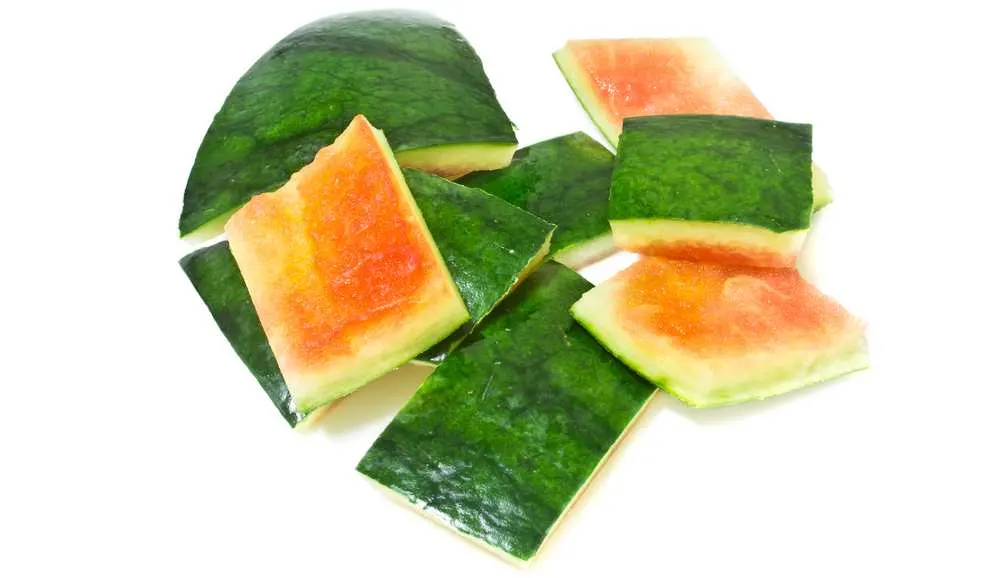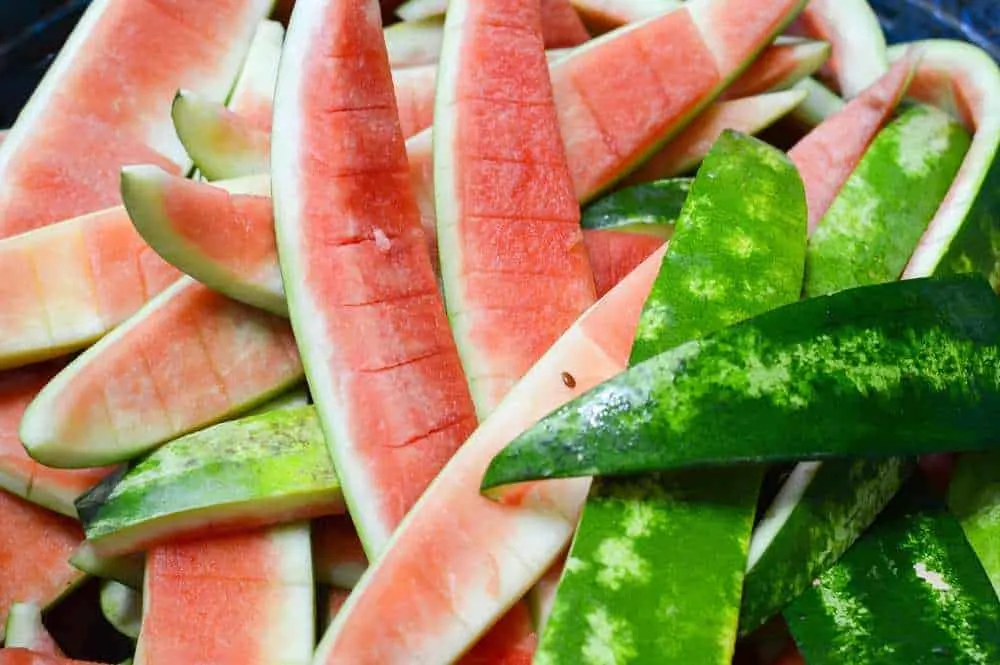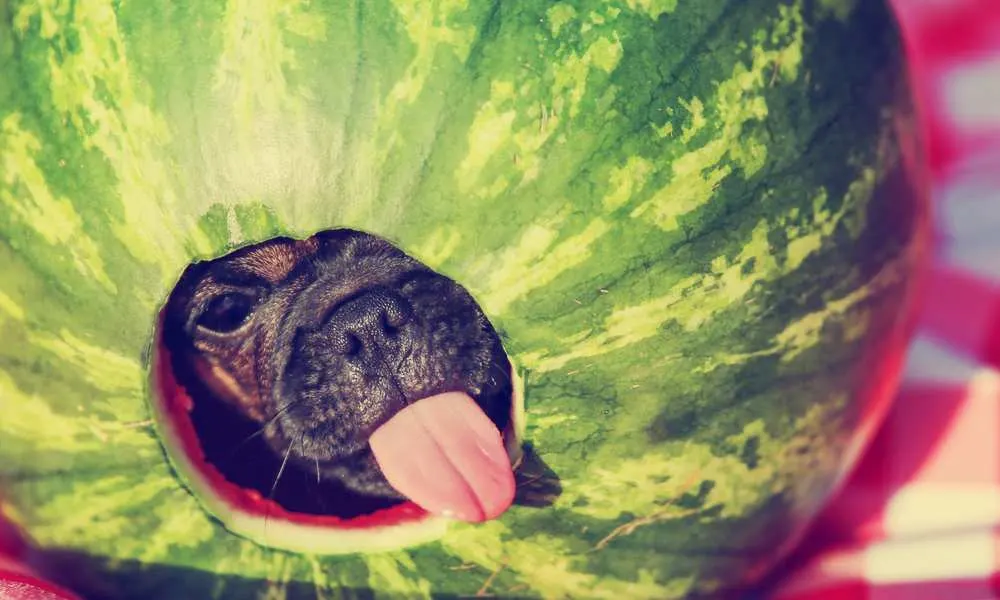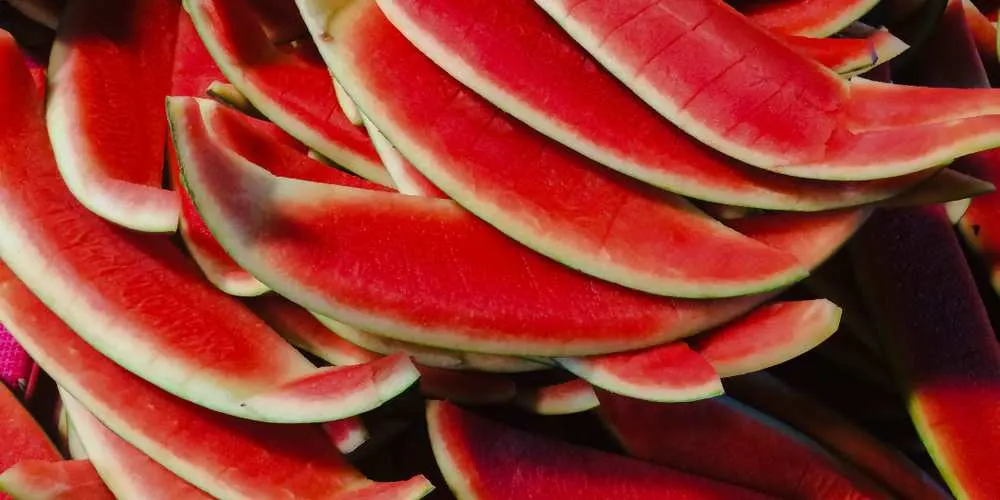Experienced dog parent or not, we’ve all been guilty of sharing some human food with our four-legged friends. Even if you try to avoid it from happening, your dog’s puppy eyes will win in the end.
But the real truth here is that dogs need to stick with their conventional dog diet, which mainly consists of meat. However, they can eat some plant-based foods, but not all veggies and fruits are safe for them to consume.
Now, you may or may not already know that dogs can eat watermelon flesh. Surprisingly, it may even provide some health benefits! We are sure your fur baby can’t resist the scent of freshly cut watermelon and can’t wait to munch on it.
However, there is one question that was always on your mind, and that concerns watermelon rind. Watermelon rind is actually (believe it or not) very healthy for humans, even though we always nimble on the flesh and toss the rest to the trash can. If you can chew it, can your doggie do the same? Can Dogs Eat Watermelon Rind?
We are here to discover whether dogs can eat watermelon rind and what are the potential health risks. Read this article first before you slice some melon rind into Charlie’s food bowl!

Can Dogs Eat Watermelon Rind?
No, dogs can’t eat watermelon rind. Watermelon rind is not toxic for dogs in any way, but it can cause digestive tract issues. It can even lead to severe health conditions and may even be lethal to your pup.
The peel of the different fruits can vary in size and thickness. Therefore, apple peel (outer layer or so-called rind) is perfectly safe for dogs to consume. However, watermelon rind is a whole other story and can be hazardous for dogs.
The Thick Rind Case
Did you know that 92% of watermelon is water? That’s thanks to its hard and thick rind. The rind protects the water evaporation, and that’s why watermelons are so juicy!
Watermelon Rind Nutrition
Watermelon is a fruit that is a part of the Cucurbitaceae family (Citrullus lanatus), and it mainly grows in tropical regions. The fruit itself is oval, round, and large. It consists of pink and red flesh with seeds and green or yellowish rind with stripes.
The tough outer layer is smooth and has a green exterior, which fades to white on the inside. The rind is much harder and less juicy than the flesh. It is low in calories and has a high content of vitamins C, A, and B6, as well as potassium and zinc. The rind is also rich in flavonoids, amino acids, and antioxidants.
| Vitamins That Are Present In The Watermelon Rind |
|---|
| B1 |
| B2 |
| B3 |
| B6 |
| Vitamin C |
| Vitamin A |
| Minerals That Are Present In The Watermelon Rind |
|---|
| Calcium |
| Iron |
| Magnesium |
| Phosphorus |
| Potassium |
| Zinc |
| Copper |
| Manganese |
Can Dogs Eat Watermelon Flesh Or Seeds?
Dogs can eat watermelon flesh, and it is healthy for them. The flesh is a nutritional powerhouse that provides vitamins A, B6, C, and potassium. Not to mention how it is low in calories (only 30 calories per 100 grams).
Watermelon flesh could yield several health benefits such as better digestion, a shinier coat, proper brain function, good eyesight, better hydration, etc. However, you need to be careful because watermelon contains 6 grams of sugar per 100 grams, so consider sharing only a few cubes with your fur buddy.
On the other hand, dogs can’t eat watermelon seeds. Make sure to remove all the seeds from watermelon flesh before feeding your dog. Seeds can cause intestinal blockage, which could be very painful and lead to other stomach-related problems.

Why Is Watermelon Rind Bad For Dogs?
Watermelon rind is hard and thick, and it can be challenging for your dog to chew on. Dogs are hasty eaters, and 90% of the time, they don’t chew the food well before swallowing. That could be very dangerous because even the small pieces of the rind can cause your dog to choke.
Another problem with watermelon rind is that it is hard to digest and can cause bowel blockage. While dogs can easily digest meat even in the raw form, that isn’t true for plant-based foods. Their digestive system is not intended to process and digest the plant’s derivatives.

What Happens If Your Dog Eats Watermelon Rind?
If your dog ate some watermelon rind, the problem could manifest in different ways. Dogs cannot process watermelon rind, so most of the following symptoms are related to the digestive system.
These are:
- Diarrhea: As watermelon rind is an indigestible food product for dogs, their stomachs will react in the form of loose stool. Diarrhea will most likely occur if your dog has eaten large amounts of the rind.
- Vomiting: Your dog’s bowel tract will have a hard time digesting the rind, and it will tend to get it out of the system. There is a possibility your dog will show the symptoms of both diarrhea and vomiting at the same time.
- Gastrointestinal obstruction: Since the rind is almost impossible for dogs to digest as it is hard and fibrous, it could cause a blockage. Some parts of the rind could get stuck in the intestines, which could be very serious and require treatment at a vet clinic right away.
What Should You Do If Your Dog Consumes The Rind?
If your dog ate an excessive amount of watermelon rind, keep a close eye on him. If your dog is showing indications of diarrhea and vomiting, don’t panic right away. Wait for a few hours, and call your vet if needed. Just make sure that your pup has enough water so he doesn’t dehydrate. Also, switch to a blend and digestible diet for the next few days.
However, if you notice your dog is in pain and has a watery and bloody stool, seek medical attention right away. Don’t try anything at home like making your dog a homemade remedy because it could only make things worse.

Final Word
In conclusion, you shouldn’t give your dog watermelon rind or seeds. The watermelon flesh is a good snack for dogs, as long as it is given from time to time and in moderation.
Although humans can (and should!) eat watermelon rind because it provides several health benefits, it is not recommended for dogs. Dogs’ digestive system is primarily designed to digest meat. While some veggies and fruits are safe for dogs to eat, others pose a significant risk for their digestive tract.
Even though watermelon rind won’t necessarily cause health problems for your dog, we think it’s just not worth the risk. Therefore, keep the watermelon rind to yourself, and share a few slices of seeds-free watermelon flesh with your pup.
In the end, it is best to feed your dog with high-quality dog food because it will provide all the necessary nutrition he needs. Keep in mind that snacks should make up 10% of the dog’s diet, and anything above can lead to obesity and pose other health problems.
Learn More: What Can Dogs Eat? A Comprehensive List Of Dog-safe Foods


